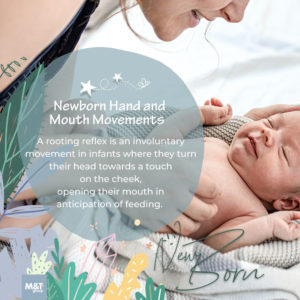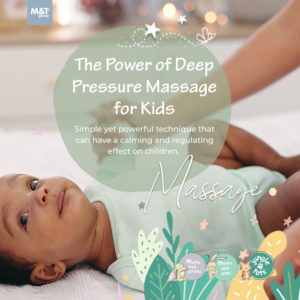Our children are often the best mirrors. Over time, I have gracefully taken a step back and realized I needed to clean up my communication.
I replaced my judgmental, negative, threatening tone with a neutral, problem solving, empathetic, encouraging one (this took TONS of practice, and I’m still a work in progress) and my little girl’s behaviour improved dramatically.
The lesson was clear for me. Talk to mini-humans the way you’d like to be talked to and things will go a lot smoother. Easier said than done, so over the years, I’ve adopted the motto “Progress over perfection.”
These 20 positive phrases are a great place to start if you’d like to make a fresh start with your communication:
1.“What do you need to remember?”
Take a break from: “Be careful.”
Example: “What do you need to remember when you play at the park?” or
“Please move slow like a careful turtle when walking on top of that wall.”
Explained: Kids often ignore when we say this same thing again and again. Instead, engage their critical thinking skills and have them re-state the important precaution. Or give them specifics on what you want.
2.“Please talk softly.”
Take a break from: “Stop yelling!” or “Be Quiet!”
Example: “Please talk softly or whisper,” (said in a whisper voice) or, “I love your singing, AND I need you to outside or in the playroom to sing loud.”
Explained: Some kids are naturally louder than others. If they have trouble speaking softly, show them where they can go to be loud and also use the power of the whisper. In combination with a gentle touch and eye contact, whispering is an incredibly effective way to get kids to listen.
3.“Would you like to do it on your own or have me help you?”
Take a break from: “I’ve asked you three times, do it now!”
Example: “It’s time to leave. Would you like to put on your shoes by yourself, or have me help you?” or “Would you like to hop in your car seat by yourself or have me put you in it?”
Explained: Most kids respond incredibly well to being empowered. Give them a choice and their critical thinking skills override their temptation to push back.
- “What did you learn from this mistake?”
Take a break from: “Shame on you” or “You should know better.”
Example: “What did you learn from this mistake?” or “What did you learn and how will you do it differently next time, so you don’t get in trouble at school?”
Explained: Focusing on motivation to change behavior for the future will get you much better results than placing shame on past misbehaviour.
5.“Please __.”
Take a break from: “Don’t!” or “Stop It!”
Example: “Please pet the dog gently” or “Please put your shoes in the closet.”
Explained: Do any of us go through our day telling waitresses, baristas, friends, etc. what we DON’T want? No, right? We wouldn’t get the best response if we said “Do NOT give us a whole milk latte” or “I don’t want the chicken.” That form of negative communication isn’t perceived well and puts undue strain on relationships. Instead, try asking for what you dowant.
When a baby is born, a parent is born
- “We are on cheetah time today and need to move fast!”
Take a break from: “Hurry Up!” or “We are going to be late!”
Example: “We’re on racehorse time today! Let’s see how fast we can move!”
Explained: Be sure to let them be on turtle time sometimes! We could all use a healthy dose of slowing down, so provide mornings where everyone is relaxed & kids can move slow.
- “Do you want to leave now or in ten minutes?”
Take a break from: “Time to go…now!”
Example: “Do you guys wanna leave now or play for ten more minutes, then leave?
Why it works: Kids love to be in charge of their own destiny, especially power kids! This takes a tad bit of proactivity, but it works like a charm! Give them a choice & they’ll respond much better when you say “Ok, 10 minutes is up, time to go.”
- “Let’s add that toy you want to your birthday list.”
Take a break from: “We can’t afford that” or “No, I said NO TOYS!”
Example: “I am not willing to buy that, would you like me to put it on your birthday wish list?”
Explained: If we’re being honest, we often CAN afford the $5 lego at checkout, we’re just not willing to purchase it. But then buy a $5 almond milk latte from Starbucks. Instead of blaming our finances and creating feelings of scarcity, own your limit, then offer ideas to help them learn how to get it (birthday, earning money, etc.).
- “Stop, breathe, now ask for what you want.”
Take a break from: “Stop whinning!”
Example: “Let’s stop, breathe together, now try again to ask for what you want.“
Explained: Be sure to model this too. Keep repeating it calmly while breathing with them, till they can self-calm and change the way they’re talking.
- “Respect yourself and others.”
Take a break from: “Be good.”
Example: “Remember to respect yourself and others when you’re inside the jumpy today.”
Explained: Be specific here as kids often don’t absorb the general statements we throw at them. Ask for what you want and have them restate what is important to remember.
- “Use your teamwork skills.”
Take a break from: “Don’t be bossy!” and “No one will want to play with you if you act like that.”
Example: “You’re a great leader. Remember to use your teamwork skills today. Ask your friends questions, instead of telling them what to do and let others have a turn leading too.”
Explained: Many kids who have a strong desire to lead (or feel powerful) are often told they’re bossy or that no one will want to be their friends if they act mean. Instead, become a coach of your child and teach them how good leaders lead with integrity—asking instead of commanding, showing instead of telling, and taking turns, so everyone has a turn to lead AND also rest, etc.
- “I need you to _.”
Take a break from: “Stop doing ,” and “It’s not ok to .”
Example: “I need you to pet the dog gently, he loves calming pets and will sit with you longer if you touch him that way.
“I need you to slow down and walk like a turtle right now instead of a racehorse since we’re in a dangerous parking lot.”
Explained: I statements come across very different than you statements, and kids respond much better when we communicate with them in non-accusatory ways. Also, asking for what you want is huge to guide kids in the direction you want (vs. focusing their brain on what you DON’T want!)
- “It’s okay to cry.”
Take a break from: “Don’t be a baby,” or “Don’t Cry.”
Example: “It’s ok that you feel sad, I’ll be over here if you need me. I know you can find a way to take care of yourself.”
Explained: It’s incredible how well kids respond when we don’t pressure them to “get over their feelings” or try to force them to stop freaking out. Empower and teach them they are capable of moving through the feeling on their own and they’ll come out of the sadness sooner—and also build their self-esteem.
- “How will you take care of yourself?”





